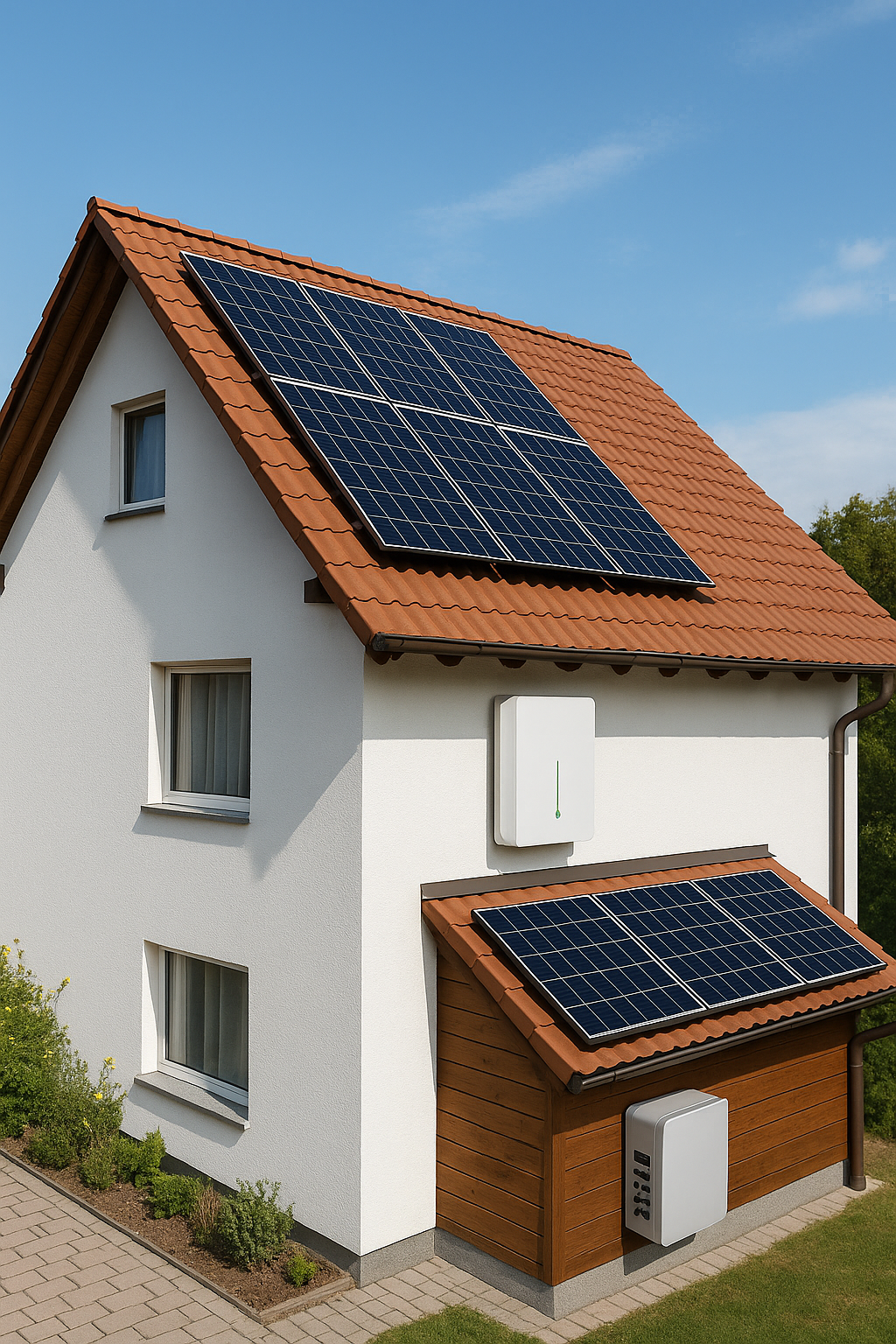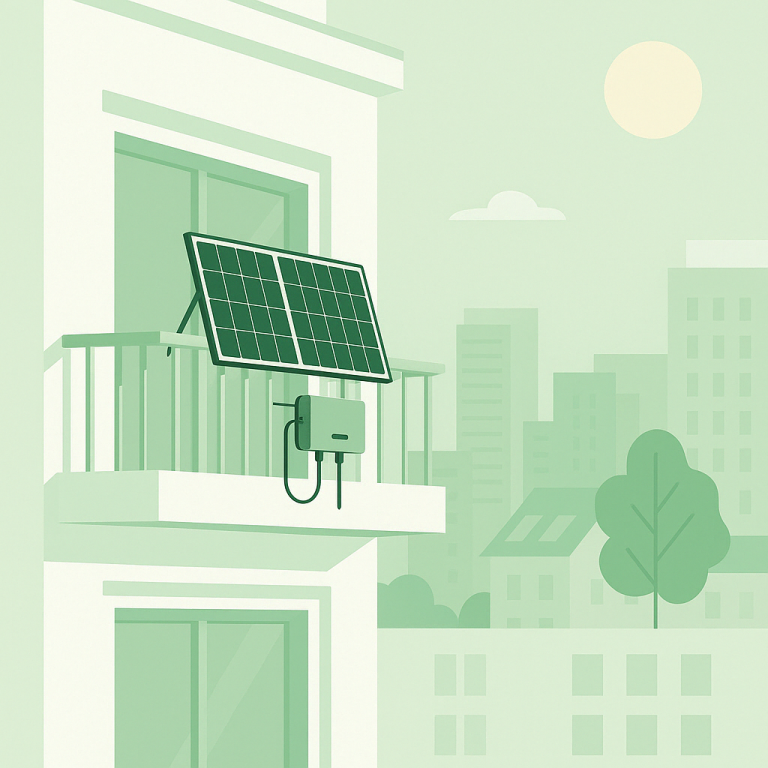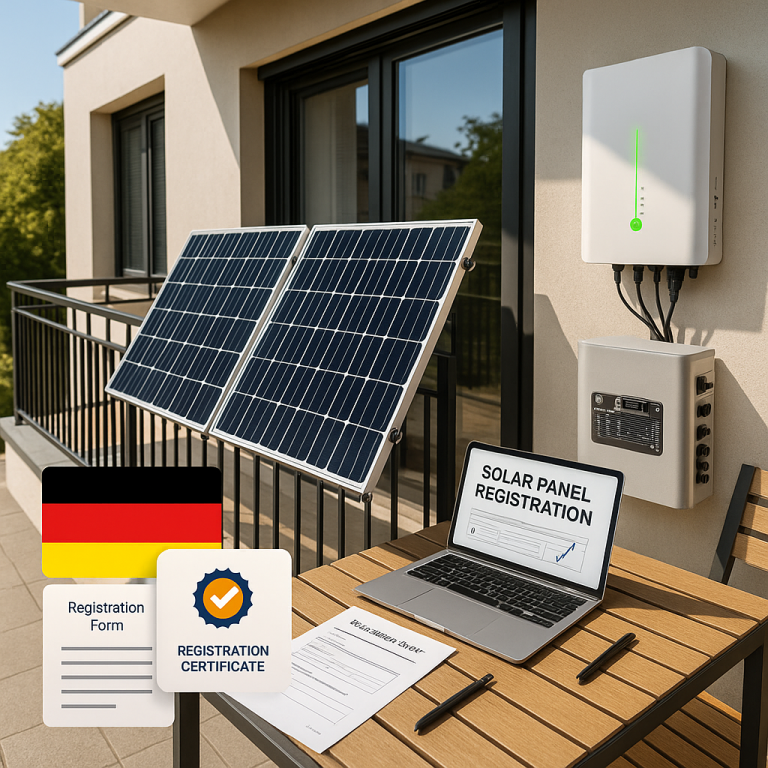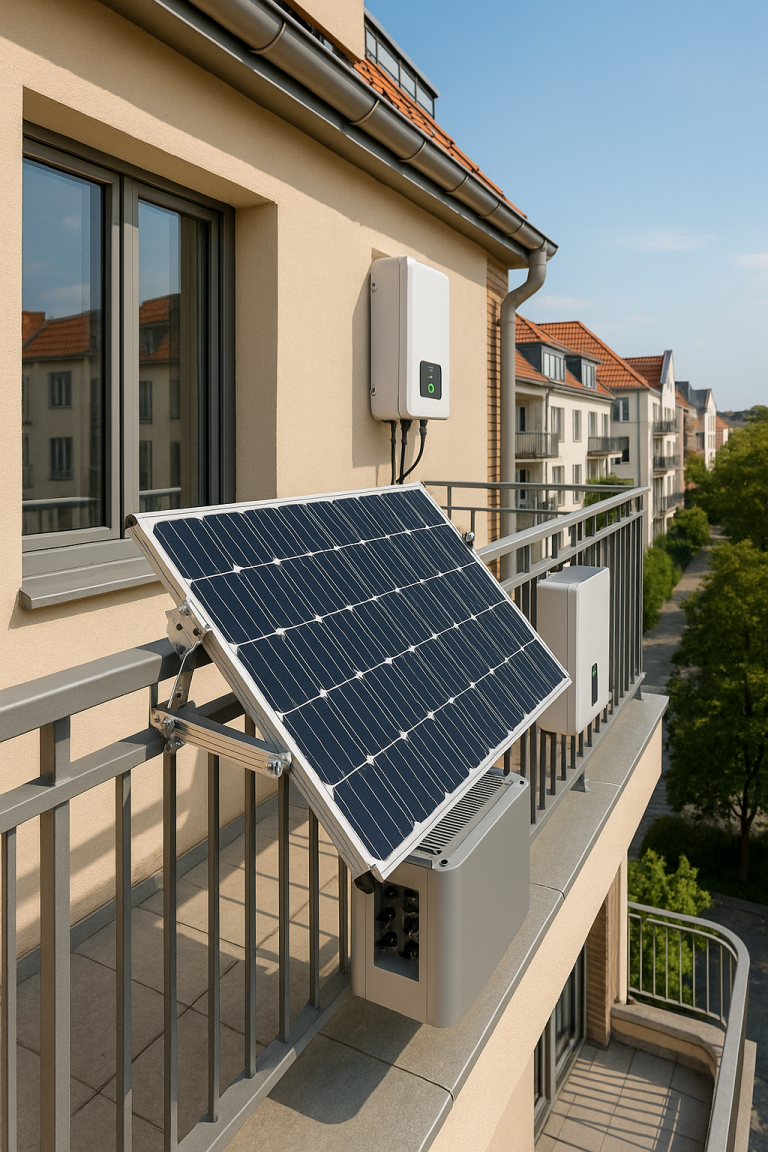☀️ Introduction: Why the Right Inverter Matters
Choosing the right solar inverter is critical for the performance and efficiency of your home solar system. Especially for small home setups in Europe, where energy consumption is more compact, and roof or balcony space is limited, selecting an inverter that aligns with local standards and your specific usage is essential.
This guide walks through the key types of solar inverters, essential specifications to consider, and how to match them with real-world residential needs in Germany, France, Netherlands, and beyond.
? Inverter Types: Which One Fits Your Home?
1. String Inverters
- Connect several panels in a series (“string”)
- Centralized system
- Pros: Cost-effective, easy to maintain
- Cons: Performance drops if one panel underperforms
2. Microinverters
- One inverter per panel
- Pros: Ideal for shaded roofs, higher energy yield
- Cons: More expensive per watt
3. Hybrid Inverters
- Combine grid-tie and battery support
- Compatible with storage like JYH-EB2048
- Pros: Future-proof for battery addition
- Cons: Slightly more complex setup
? Tip: For European homes with energy storage plans, hybrid inverters are an excellent investment.
? Key Technical Features to Consider
- Efficiency Rating: Look for >95% rated efficiency
- MPPT Inputs: Maximum Power Point Tracking optimizes solar input
- Voltage Compatibility: Match with your panel output (e.g., 120V/230V for EU)
- Monitoring System: Wi-Fi or Bluetooth enabled for real-time tracking
- Noise Levels: Especially important for small apartments
? MPPT controller basics – European Commission Energy Portal
? Certifications and Compliance in Europe
Make sure your inverter meets:
- CE Certification
- VDE-AR-N 4105 (Germany)
- EN 50549 (EU grid compliance standard)
- RoHS & EMC directives for safety and emissions
✅ Bonus Tip: Check the inverter brand against listings by DGS (German Solar Energy Society) for verified manufacturers.
? Case Study: JYH-Inverter for Small Home PV Projects
The JYH-Inverter series offers:
- Modular power range: 300W to 1600W
- Full VDE and CE certifications
- Integrated MPPT and smart monitoring via app
- Ultra-quiet (<25 dB)
- Lightweight: ideal for balconies, sheds, or compact roofs
Compare to other brands:
| Feature | JYH-Inverter | Enphase IQ7 | Growatt MIN |
|---|---|---|---|
| Power Range | 300–1600W | ~250W per unit | 1500–3000W |
| Certification | CE, VDE | CE, UL | CE, VDE |
| MPPT Efficiency | 99.5% | 97% | 98% |
| Monitoring | Mobile App | Enphase Envoy | Shine WiFi-X |
| Noise Level | <25 dB | <20 dB | ~30 dB |
| Price Range (EU) | Medium | High | Medium |
? JYH-Inverter GTMI-1000~1600 Series Manual (PDF)
? Conclusion: Match Specs to Space
Small European homes benefit most from smart, efficient inverters that don’t waste energy, space, or money. Whether you prioritize low noise, modular design, or battery-ready integration, always match your inverter to your long-term solar goals.
The JYH-Inverter proves to be a strong choice for homeowners who value silent operation, high MPPT efficiency, and easy installation.
? Compare more residential inverters on our blog ? Talk to a solar advisor to get personalized recommendations




